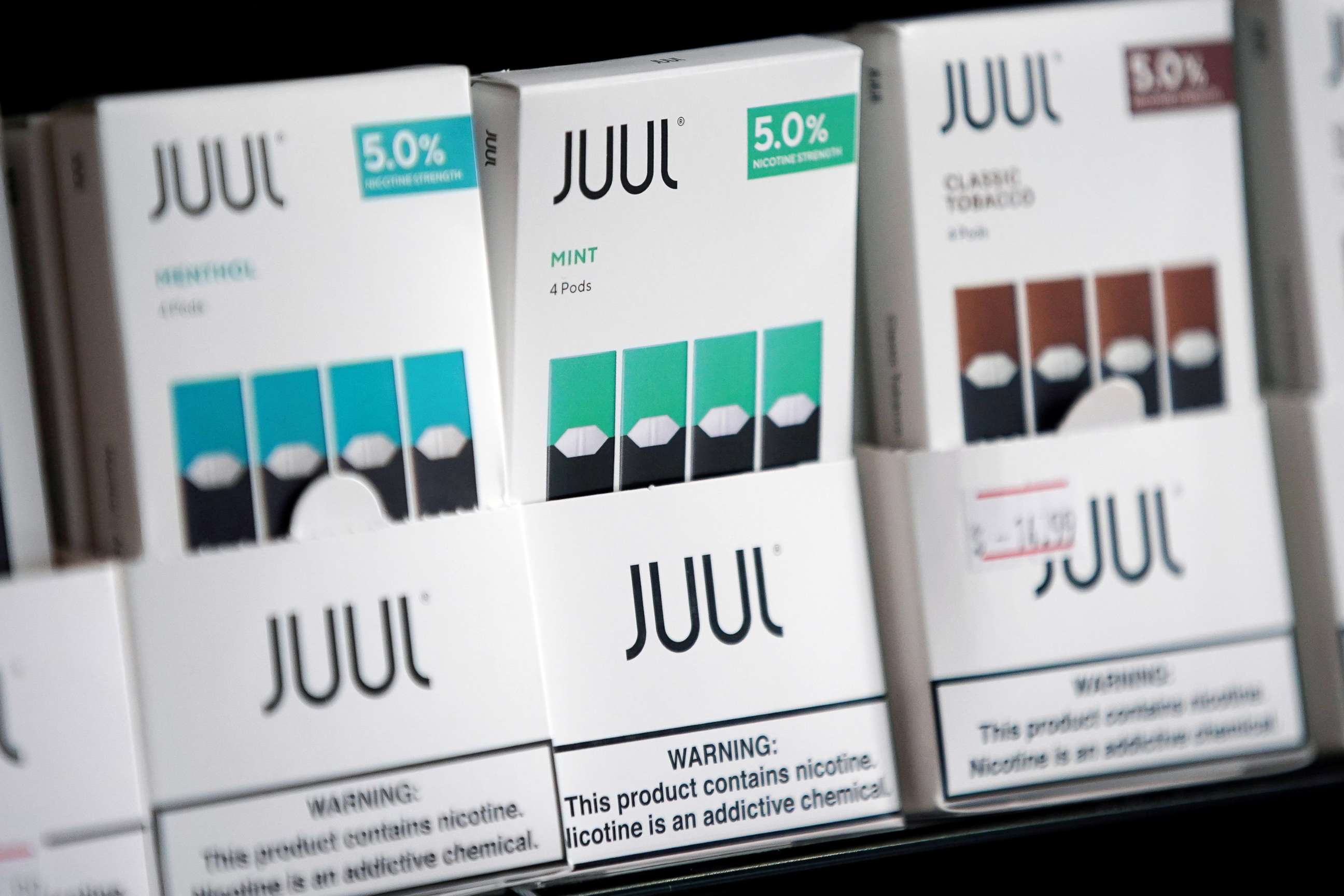Juul reaches $40 million settlement in North Carolina for alleged role in 'teen vaping epidemic'
As part of the agreement, the company denies wrongdoing.
North Carolina's attorney general announced Monday that a $40 million settlement had been reached with e-cigarette maker Juul over its alleged role in fueling the "vaping epidemic" among young people.
"For years, Juul targeted young people, including teens, with its highly addictive e-cigarette," Josh Stein, North Carolina's attorney general, said in a statement. "It lit the spark and fanned the flames of a vaping epidemic among our children -- one that you can see in any high school in North Carolina."
"This win will go a long way in keeping Juul products out of kids’ hands, keeping its chemical vapor out of their lungs, and keeping its nicotine from poisoning and addicting their brains," he added.
Stein's investigation of Juul's business practices dates back to 2018, and in 2019 he sued the company for designing, marketing and selling its e-cigarette products to attract young people. He also accused the company of misrepresenting the potency and danger of nicotine in its products.
Juul has now agreed to pay $40 million to the state over the next six years, according to Stein, and the money will go toward funding programs to help people quit e-cigarettes, prevent e-cigarette addiction and research into e-cigarette use. As part of the agreement, however, Juul denies wrongdoing or the violation of any laws.

Juul has also agreed to a handful of commitments as part of the settlement including: Using no marketing that appeals to people under the age of 21; not using most social media nor influencer advertising; not advertising outdoor near schools; and not making any claims that compare the health effects of Juul with health effects of combustible cigarettes in its marketing materials.
Moreover, Juul has committed to stringent, third-party age verification processes for both online and retail sales. The agreement also requires Juul products to be sold behind the counter so that they cannot be accessed without an employee's assistance.
The U.S. Food and Drug Administration reports that some 3.6 million middle and high school students were current users of e-cigarettes in 2020.
In a statement, Juul painted the settlement as a way to help reset trust with the public.
"This settlement is consistent with our ongoing effort to reset our company and its relationship with our stakeholders, as we continue to combat underage usage and advance the opportunity for harm reduction for adult smokers," the company said.
The company added that it looks forward to working with Stein and other manufacturers "on the development of potential industrywide marketing practices based on science and evidence."
"We seek to continue to earn trust through action," Juul added. "Over the past two years, for example, we ceased the distribution of our non-tobacco, non-menthol flavored products in advance of FDA guidance and halted all mass market product advertising. This settlement is another step in that direction."
Stein, meanwhile, added in his statement that his work combatting the vaping epidemic continues.
"We’re not done -- we still have to turn the tide on a teen vaping epidemic that was borne of JUUL’s greed," Stein said. "As your attorney general, I’ll keep fighting to prevent another generation of young people from becoming addicted to nicotine."
Prior to the COVID-19 pandemic, regulators and lawmakers had begun cracking down on the e-cigarette industry as reports of lung injuries and even deaths mounted.
Due in part to its market dominance, Juul found itself at the center of the frenzy and multiple legal battles.
Meanwhile, the FDA's pending review of Juul -- which will decide the company's fate in the U.S. -- is expected this September.




